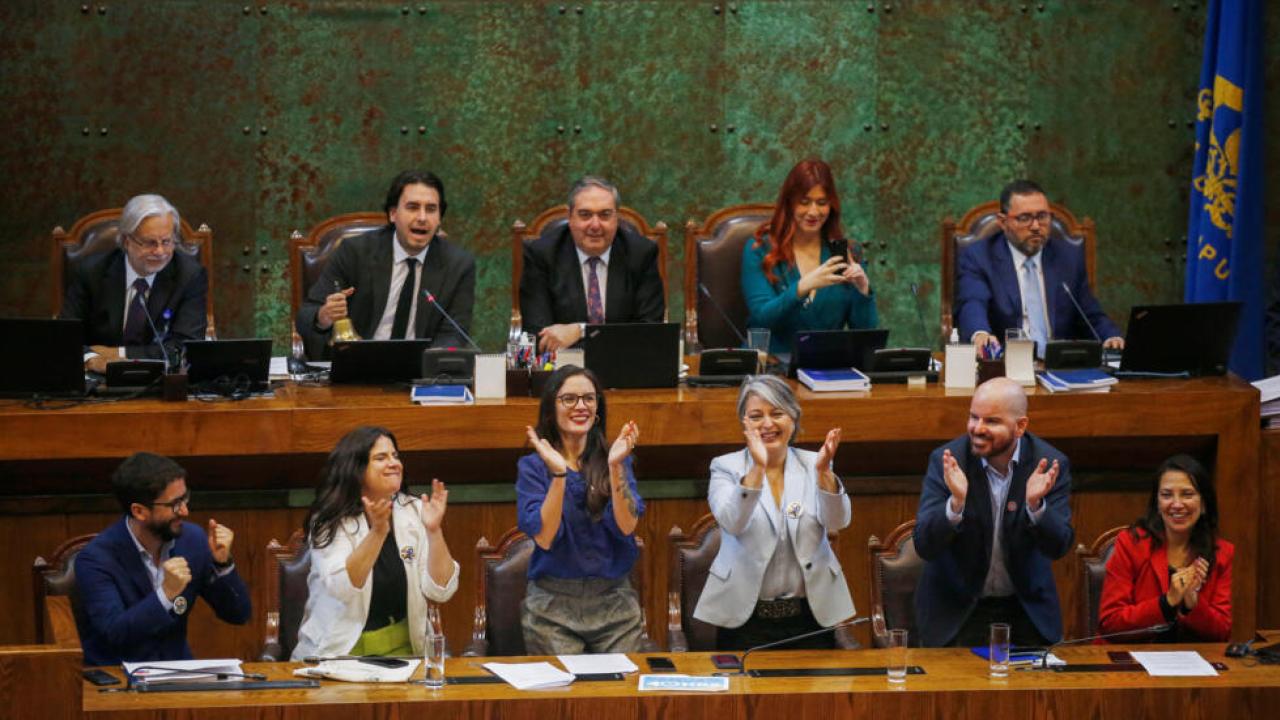
Chile's Labor Minister called business to "respect the rights" of workers. Meanwhile, the business sector asked the government of Gabriel Boric to apply "pro-growth measures."
A couple of weeks before the 40-hour Law is enforced in Chile, the Minister of Labor, Jeannette Jara, asked employers to "respect people's rights more", regarding the labor flexibility contemplated in said law.
The business sector responded that to generate better working conditions and greater “social mobility”, it is key to attack informality and promote pro-growth measures.
WORKING DAY OF 40 HOURS WEEK
Starting in April, one of the most emblematic projects of the current Government will gradually come into effect: the 40-hour work week.
The measure will imply changes in employment in Chile from the new Labor Code.
Discussion focuses on other measures contemplated by the Law, which are related to flexible hours and the reconciliation of personal and family life.
In the framework of the conversation “Changing the Rules of the Game”, Minister Jara highlighted that although informality (27.9%) is a problem that needs to be tackled, Chile's informality rates remain below most countries in Latin America and the Caribbean.
Likewise, he maintained that informality is a phenomenon that occurs due to poor working conditions and it was along these lines that he called the business community to “respect people's rights.”
“(…) If people here work a lot and earn very little, respect people's rights more. That is also the role of businessmen,” said the Secretary of State.
His statements are part of the framework of the Law on the Reconciliation of Personal, Family and Work Life that came into force at the end of January.
These regulations modified the Labor Code, establishing the right to telework and incorporated issues of social co-responsibility, benefiting an estimated universe of more than 360,000 workers.
REACTIONS OF THE CHILEAN BUSINESS LEADERS
Debate took place around the words of the president of the Confederation of Production and Commerce (CPC), Ricardo Mewes, who stated that companies are already talking (with employees) regulations since the pandemic.
He criticized that “the worker's freedom is taken away” when it comes to choose or not a deadline.
The business leader indicated that the correct path is growth, which will contribute to social mobility.
“The best public policy to improve employment is economic growth and that is not happening today in Chile (…),” Mewes denounced.
The president of Pivotes, Bernardo Larraín, shared the vision of the CPC and said that the main focus today should be combating informality, providing higher income to the Treasury and improving working conditions for all people.
The 40-hour Law will begin to take effect with a 1-2-2 Formula. That is, during the first year one hour is reduced, in the third year two more hours and in the fifth year the remaining two.










